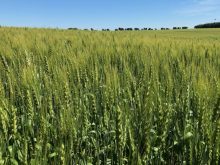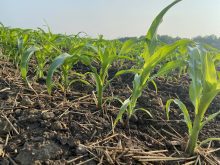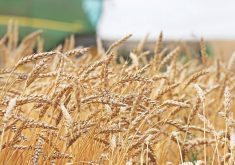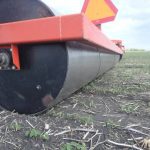The major North American grain and oilseed markets continued to trend lower in mid-February, with canola, soybeans, corn and wheat contracts all setting new contract lows as the futures work to uncover demand.
Burdensome supply/demand fundamentals, coupled with heavily short speculators and farmer selling on any attempts at moving higher, give little reason to expect a turnaround anytime soon for these commodities. Meanwhile, global transportation issues are creating additional headaches for any commodities that are moving.
Canals: Houthi rebels have reduced trade movement through the Suez Canal by 42 per cent over the past two months as vessels reroute to safer waters, according to a report from the United Nations Conference on Trade and Development (UNCTAD). Meanwhile, movement through the Panama Canal is down by 49 per cent from peak levels as drought lowered water levels.
Read Also

Weed resistance closes in on glufosinate
Expanded soybean acres and tighter application windows have eroded buffers that have so far protected Liberty herbicide on Prairie farms
When it comes to the agricultural markets, the higher freight and energy costs are passed down to consumers and farmers, with higher prices in the grocery stores and lower bids to producers.
“Disruptions in grain shipments from Europe, Russia and Ukraine pose risks to global food security, affecting consumers and lowering prices paid to producers,” UNCTAD warned.
Rail strike: Roughly 9,300 unionized workers at Canadian National and Canadian Pacific Kansas City are on the verge of taking strike action or being locked out by the railways, as negotiations to renew three collective bargaining agreements have reached a standstill. The work stoppages could happen as early as May and would cause serious disruptions to North American grain movement.
Safety conditions, wages and working conditions are among the major issues of contention, according to the Teamsters Canada Rail Conference, the union representing workers at both companies.
Spring road bans: The spring melt across Western Canada will cause disruptions to grain and livestock movement as seasonal spring road restrictions come into effect across the Prairies. Spring road restrictions set axle weight limits for vehicles moving on certain roads to reduce the damage heavier loads can cause during the spring thaw.
Grain and equipment movement can both be affected by spring road bans, as drivers may need to find alternative routes or haul smaller loads. The duration of restrictions will depend on local weather conditions, but typically start in early March and last through April and into May.
Mississippi River: One bright spot on the transportation front may be the Mississippi River system, which carries much of the U.S. grains and oilseeds from inland fields to export positions on the Gulf Coast. Low water levels limited barge traffic back in the fall, but levels have returned to average, according to the U.S. Army Corps of Engineers.
However, a lower snowpack in the northern reaches of the river basin could still be a concern, with more precipitation still needed to keep traffic flowing.
















